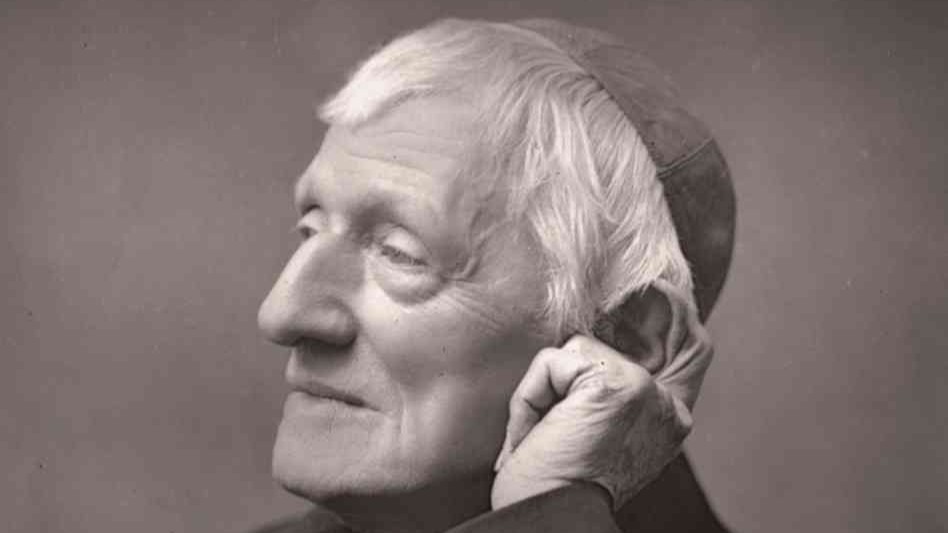(Updated June 24, 2025)
Roger Sherman (1721-1793) was an American Founder who served in the Second Continental Congress, signed the Declaration of Independence, and helped draft the Articles of Confederation. At the Constitutional Convention, he proposed the “Sherman Plan,” or “Connecticut Compromise,” which called for a two-house Congress in which the House of Representatives and the Senate would use different systems of representation.
Next to each quote are the Topic Quote Archives in which they are included.
This Quote Archive is being continuously updated as research continues. Quotes marked with “***” have not yet been organized into their respective Topic Quote Archives.
Letters
Roger Sherman, To Joseph Bellamy (July 23, 1772)1
I mention these only to shew the General Sense of the Colony that the continuance of a people’s obligation to their Minister does not depend on their own will, but remains in force ’till discharged by mutual agreement or something is done by the minister to forfeit his Rights to the benefits of it. Nor do I know of one Instance to the contrary. If therefore this be the true understanding of the parties contracting must they not beholden to perform accordingly: Unless such a contract is in the nature of it unlawful?
As to the Instances in the Apostolic times, of Ministers Sent to preach to persons not converted to Christianity, and the directions given them, as, “If they persecute you in one city flee unto another—If they receive you not shake of[f] the Dust of your feet” (Matt. 10:13-14) etc. they seem not to apply to the Case in Question. And after particular Churches were gathered, and Elders were ordained in every Chh. [sic]. We have their respective Duties pointed out, but I don’t recollect any Instance mentioned in Scripture of Elders being deposed or dismissed, nor any Rules for doing it, except for Heresy or Scandal…
Now if there is any Law Divine or Humane, or practice of the Christian Church, or anything in the Nature of the Relation, to Contradict this I should be glad to see it produced.
Roger Sherman, To John Witherspoon (July 10, 1788)2
The law of this state admits of divorce; for fraudulent contract, Adultery, or three years willful desertion and total neglect of duty.
Herein it agreed with the Westminster Confession of Faith article 24th. The late President Edwards was also of the same opinion, as appears by the enclosed not extracted from his writings…
It is evident that those who admit willful desertion as a sufficient ground for divorce, found their opinion on 1 Cor. 7.15, which they suppose contains an apostolic direction in a case not mentioned by our Lord in the Evangelists, and perfectly consistent with what he has said on the subject. They suppose that what is contained in the Evangelists, and referred to in 1 Cor. 7.10, 11, as said by the Lord, imports no more, than, that no separation, or voluntary departing or putting away, except for incontinency, is lawful, or if the wife should accept a Bill of divorce from the husband, and thereupon voluntarily leave him, it would not dissolve the band of matrimony, and either party that should marry another in consequence of such separation would be guilty of Adultery.
But in case there should be a willful desertion of one party, either by going 738 | 739 away and leaving the other, or by cruelty and abuse compelling the other to go away, this conduct obstinately persisted in, so as totally to deprive the other of all the benefits and comforts of the marriage state; the innocent party, after using all proper means to reclaim the other, and waiting a reasonable time, and there appearing no prospect of reconciliation, may, upon application to public authority be lawfully declared free from the band of marriage, and be at liberty to marry another.
This distinction they suppose is evidence from what the apostle says in the 12th verse, “To the rest speak I, not the Lord” (1 Cor. 7:12). This was therefore a new case on the same subject, about which our Lord has not given any direction.
Roger Sherman, To Rebecca Sherman (June 29, 1789)3
Upon hearing about the death of his son, and Rebecca’s stepson, William.
The late bereaving stroke of divine Providence in our family is very affecting to me…
It is my earnest prayer that this Providence may be suitably regarded by me and all the family, and especially the surviving children of our family, and his child—that they may be excited to be always in actual readiness for death.
Our children have all been brought under the Bond of the covenant, by Baptism, but those of them who are come to years of discretion should consider that it is indispensably necessary for them to give their cordial consent to the covenant of grace and that it is their duty to make a public profession of religion and attend all the ordinances of the Gospel, and in order to understand how this should be done in a proper manner they should search the scriptures and attend public preaching.
Roger Sherman, To Simeon Baldwin (June 29, 1789)4
I wish this sudden and sorrowful event may be sanctified to all the family—that we may always be prepared for so great and important a change, by choosing the good part that can never be taken away from us.
Roger Sherman, To Simeon Baldwin (February 4, 1790)5
I esteem him [“Dr. Edwards”] one of the best preachers that I am acquainted with, sound in the Faith, and pious, and diligent in his studies and attention to the duties of his office. I should be very sorry to have anything done to grieve him or weaken his hands in the great and important work committed to his charge. If he should leave the Society I should expect that would be divided and broken up. I hope all the well-wishers to pure religion will use their influence to preserve peace—and avoid calling Society meetings unnecessarily, as I think it would only promote dissension.
Our Savior says “Woe to the world because of offenses; but woe to that man by whom the offence cometh” (Matt. 18:7). I am willing that anything I have written should be made known if it will do any good, not only to the friendly but to the disaffected if there be any such. I feel well affected to all the members, and wish to have cordial harmony restored.
Perhaps there is nothing more pleasing to the adversary of mankind than discord among Christian brethren…
It is a matter of no great importance if there were no diversity of 769 | 770 sentiment between two Pastors, but as there really is, and as some members of our church would be dissatisfied with it, I think it would be highly criminal to insist upon it, so as to break the unity of the church. Let each preach his own lecture, and everyone may attend either, or both, at pleasure…
I think that Deacon Austin could do as much to reconcile matters as any member of the Society, and that it is the duty of everyone to use their Influence to that end, and to strengthen the hands and encourage the heart of Dr. Edwards in his ministerial work.
Roger Sherman, To Justus Mitchell (February 8, 1790)6
I perfectly agree in sentiment with you that moral depravity or inability is no excuse for not complying with the requirements of the law or the gospel, but that blame or guilt is aggravated in proportion to the degree of it.
My brother expresses the same sentiment in page 16th of the copy of the sermon that I sent, in these words, “The gospel considers mankind as under this inability, or spiritual death, and considers it as their sin, and their disease, and at the same time that the gospel condemns them for it as their sin, as much as the law doth, yet it offers them a remedy for it as a disease.”
The notes of that sermon I think are very incorrect, so that his sentiments cannot be clearly understood by it. And I think you could easier make a new one from the same text than correct that [illegible word] for the press, and I believe most or all the sentiments intended to be contained in that discourse are more clearly expressed in his printed sermons. He says in his History of the War, page 49, “Regeneration is produced in the principle of the soul, by an immediate, instantaneous, irresistible operation of the spirit of God.” He supposes that men are under a natural inability to comply with the requirements of the law or the gospel until they have a doctrinal knowledge of them—and this knowledge is attainable in the exercise of their natural powers in reading, hearing, and none have reason to expect to be regenerated until they have attained it in the use of means, and that they have a great encouragement to expect it in that way as he that tilleth his ground has to expect a crop—but there is no promise or absolute certainty of success in either case—but in both cases a certainty of failure of success if the means are not used. And further, 764 | 765 when man have attained a competent doctrinal knowledge of the laws & gospel their natural inability to comply is removed, and then if they do not comply they will be inexcusable.
In the latter part of his life, he seemed to have his mind deeply impressed and affected with the danger that secure sinners are in of perishing from under gospel light for want of a due attention to the means of grace of the vast importance of their being awakened to a sense of their danger & roused from a state of carnal security and attend to the gospel offers, and this zeal led him strenuously to oppose everything that he thought tended to discourage their earnest & diligent attendance on the means of grace—and perhaps he might in some instances rate the endeavors and striving of unregenerate sinners.
I suppose that moral good or evil consists not in dormant principles, but voluntary exercises, that regeneration simply considered is not a moral virtue, but the holy exercises that flow from it are—and on the other hand no propensities in animal nature are in themselves sinful, if not indulged contrary to the law. That moral good consists in right exercises of the natural powers and principles of the soul, in setting the affections on right objects and moral evil in placing the affections in wrong objects. And mankind having the power of free agency are justly accountable for the exercise of their natural powers, and they any indisposition to do what they know to be their duty can be no excuse for not doing it.
Footnotes
- Roger Sherman, Mark David Hall, ed., Collected Works of Roger Sherman (Indianapolis: Liberty Fund, 2016), 728. ↩︎
- Roger Sherman, Mark David Hall, ed., Collected Works of Roger Sherman (Indianapolis: Liberty Fund, 2016), 738-39. ↩︎
- Roger Sherman, Mark David Hall, ed., Collected Works of Roger Sherman (Indianapolis: Liberty Fund, 2016), 741. ↩︎
- Roger Sherman, Mark David Hall, ed., Collected Works of Roger Sherman (Indianapolis: Liberty Fund, 2016), 745. ↩︎
- Roger Sherman, Mark David Hall, ed., Collected Works of Roger Sherman (Indianapolis: Liberty Fund, 2016), 769-70. ↩︎
- Roger Sherman, Mark David Hall, ed., Collected Works of Roger Sherman (Indianapolis: Liberty Fund, 2016), 764-65. ↩︎









